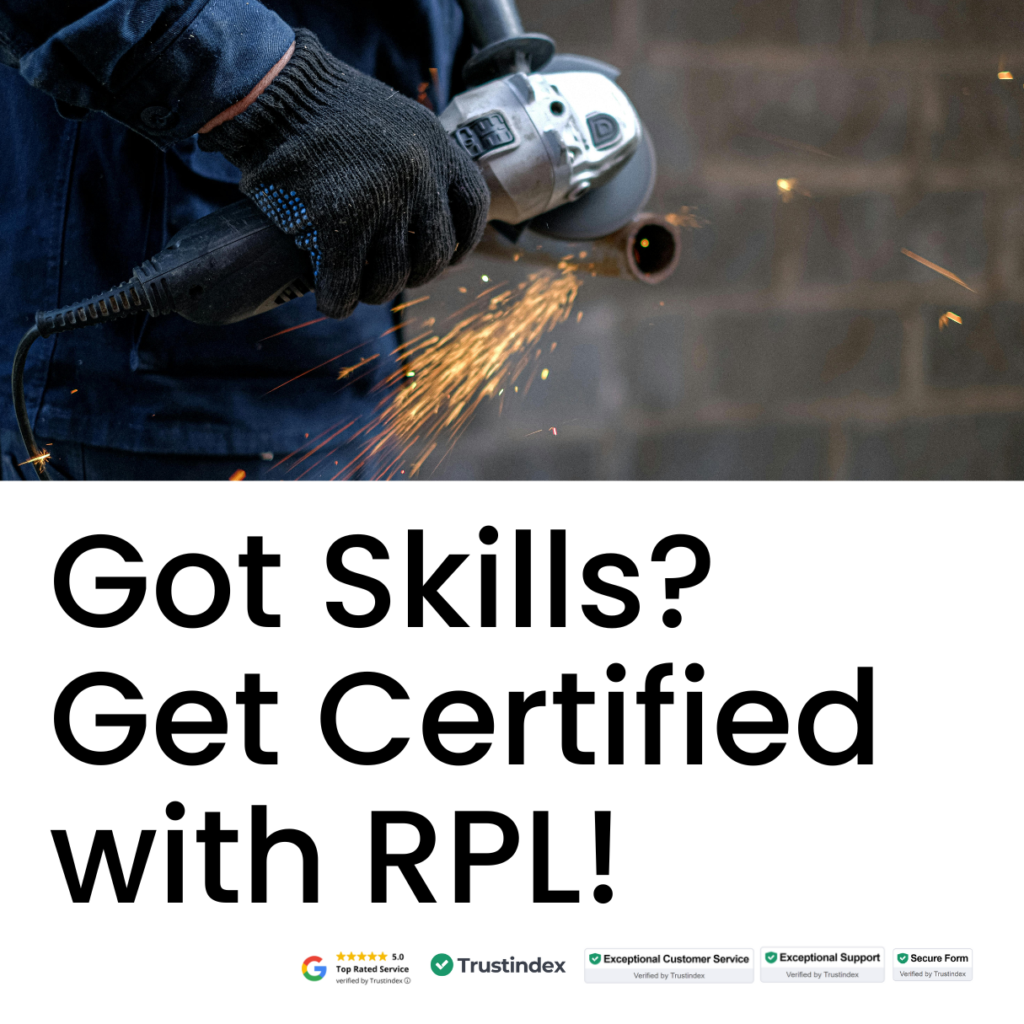Recognition of Prior Learning (RPL) is a fast and efficient way to gain nationally recognised qualifications based on the skills and experience you’ve already acquired. However, several misconceptions about RPL prevent many professionals from taking advantage of this amazing opportunity. In this blog, we’re going to debunk the top five myths about RPL and show you how it can help fast-track your career, without the time-consuming study and rigid classroom hours.
1. Myth: RPL is Only for People Who Have Been in the Industry for Years
Reality: While RPL is perfect for those with years of experience, it is also accessible to professionals who have been working for just a few years. RPL recognises skills and knowledge gained through various experiences, not just long-term employment. Even if you’re relatively new to the workforce or transitioning into a new field, RPL can still help you achieve qualifications based on the knowledge, skills and experience you already have.
Pro Tip: Want to know how RPL can apply to your specific situation? Check out our blog on Navigating the RPL Process: A Comprehensive Guide to learn how RPL works for professionals at different stages in their careers.
2. Myth: You Need to Take Time Off Work to Complete RPL
Reality: One of the biggest myths about RPL is that you need to step away from your job to complete the process. This is completely false. RPL is designed to be flexible and can be completed alongside your regular work and personal commitments. You don’t have to attend classes or take exams. Instead, you simply submit your evidence, and the process works around your schedule.
Pro Tip: Wondering how you can balance your RPL journey with your busy work life? Check out our blog on How RPL Helps You Maintain Your Work-Life Balance for tips on how to incorporate RPL into your routine without disrupting your career.
3. Myth: RPL is Just a Shortcut – It’s Not a Real Qualification
Reality: This is one of the most persistent myths about RPL. Some people think that RPL is just a quick shortcut and that the qualifications you receive aren’t as legitimate as those earned through traditional study. This is simply not true. RPL leads to the same nationally recognised qualifications as those awarded to students who complete formal education.
Pro Tip: The qualifications you receive through RPL are fully recognised across Australia, just like those from traditional educational paths. For more on how RPL is assessed and awarded, check out Mastering RPL Evidence: Types, Rules, and Submission Tips to learn how your evidence is evaluated.
4. Myth: You Need to Have Everything Perfectly Documented for RPL
Reality: It’s a common misconception that to apply for RPL, your portfolio must be flawless, with every task and skill perfectly documented. While it’s important to provide comprehensive evidence, your documentation doesn’t need to be perfect. You can submit relevant work samples, reference letters, certifications, and other documents that demonstrate your experience.
Pro Tip: Need help gathering the right evidence for RPL? Learn how to collect and organise your portfolio by reading our blog on How to Write a Winning Reference Letter for Your RPL Application. It will give you the guidance you need to create a strong, convincing application.
5. Myth: RPL is a Complicated and Time-Consuming Process
Reality: Some people believe that RPL is a lengthy, bureaucratic process that involves endless paperwork and delays. In reality, RPL is designed to be straightforward and efficient. The process involves submitting your evidence, getting assessed by an RTO, and receiving your qualification. It’s faster and less stressful than traditional study routes.
Pro Tip: If you’re concerned about how long the RPL process might take, our blog Navigating the RPL Process: A Comprehensive Guide provides a detailed look at each step, helping you understand how quick and efficient RPL can be.
Conclusion: RPL is a Career-Boosting Opportunity
Now that we’ve debunked these common misconceptions, it’s clear that RPL is a practical, efficient, and highly beneficial pathway for achieving qualifications. Whether you’re early in your career, switching industries, or simply looking to fast-track your qualifications, RPL can help you gain formal recognition for your experience and expertise without disrupting your work-life balance.
Ready to Start Your RPL Journey?
Don’t let misconceptions hold you back! Take the first step today by completing our Free 40-Second RPL Skill Assessment to find out which qualifications align with your existing skills and experience.
Start your RPL application today and take the next step in advancing your career! Visit our RPL Page to learn more about how RPL can help you gain the recognition you deserve.
All qualifications are awarded by our trusted partner RTOs.









